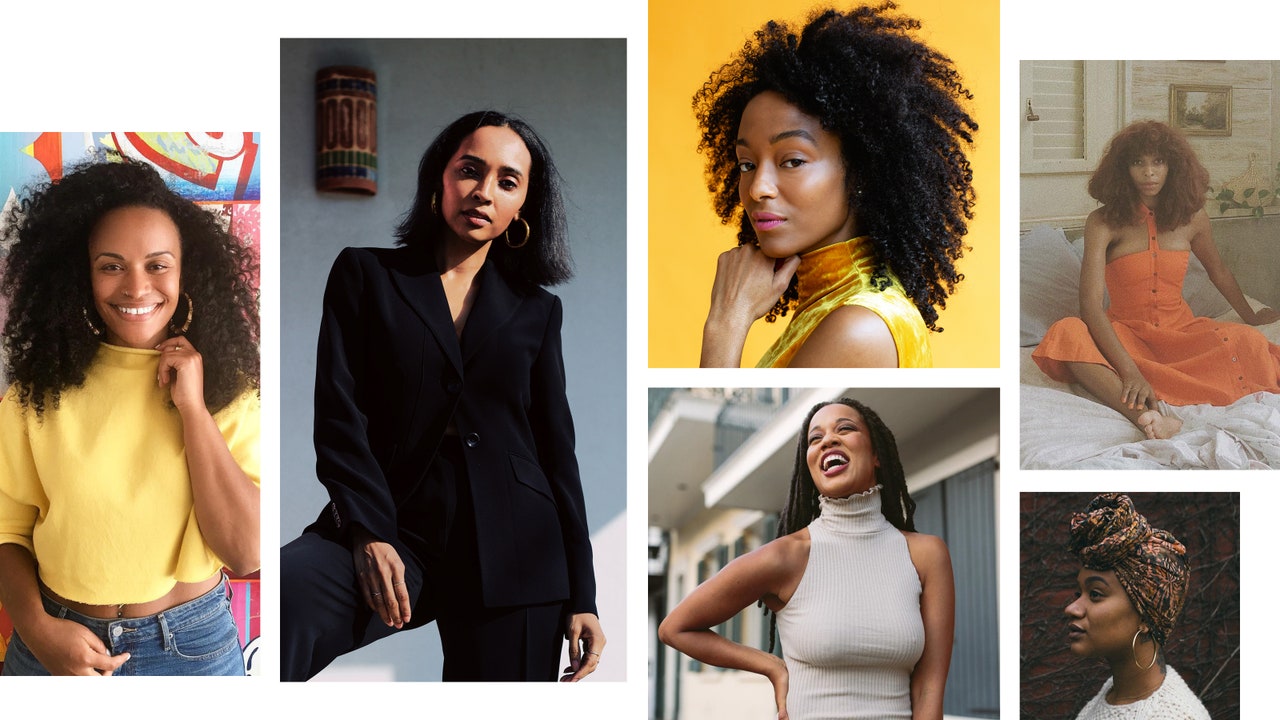The Importance of Black Wellness Influencers Cannot Be Overstated

[ad_1]
There was a period in my life when I was seeing a white therapist. I was 21, stressed about my first full-time fashion magazine job, and I’d started experiencing an increase in anxiety attacks. She wasn’t my first choice, not even my second, but almost all the Black female therapists I reached out to did not accept my insurance or any insurance. Still, I shared, I listened, and I learned during our few brief months together but I never felt that I could truly open up about my experiences as a young Black woman dealing with my Black family, Black friends, and the Black men I dated. When I did bring up race and its impact on my life, she never dismissed it, she actually acknowledged it. Yet, I wanted more than that. I wanted to know that she had already recognized and experienced these feelings too.
At the time, I thought formal therapy was the only solution that could support me in my time of need. My hesitancy to feel comfortable around my white therapist made the experience seem useless, so I just stopped going—something many Black women can relate to.
“We don’t trust the healthcare system, for good reason,” says Jade Kearney Founder and CEO of She Matters, a digital health platform for Black moms. “It’s historically not served us well. Our bodies have been violated, our rights have been violated. So without trust, we’re not going to be honest about what we’re really experiencing or we’re just not going to go.” With only two percent of psychiatrists being Black and Black physicians only making up five percent of the medical field, there are large numbers of us who will not have access to Black healthcare professionals on our wellness journey.
And speaking of wellness: The $4.2 trillion global industry that’s typically characterized by high-paid influencers, self-care retreats, juice bars, group hikes, and luxurious mental health centers has not always been something I felt comfortable with, either. In fact, it was something I referred to as “white people stuff”. If you Google “wellness influencers,” the dozens of photos that pop up are, truly, overwhelmingly white. White women doing yoga. White women smiling over green juice. White women posed serenely with plants. If you’re a white woman looking for advice about your hair, skin, mental health, lifestyle changes, or self-care, you have a seemingly endless stream of content at your fingertips.
It’s a different story for women of color. If you’re a young Black woman, there are far fewer opportunities to find the type of beautifully curated content on Instagram related to our hair type, skin type, or overall well-being. There are far fewer opportunities to feel seen in the wellness world. The wellness influencers that do cater to Black women have served as a source of refuge and learning for Black women like me, who seek out their knowledge in lieu of or sometimes in conjunction with working with their personal mental health professionals.
Yet, despite their impact, the journey to finding these influencers isn’t as simple as a quick Google search. These influencers often don’t appear prominently on mainstream wellness platforms, don’t have multi-million dollar sponsorships, and are not given the same attention by the media. The lack of visual representation of Black women in wellness had previously discouraged me—and others—from fully exploring what it meant to be well and the various ways that it could be achieved.
“I was surrounded by all-white everything during my first several years of practicing yoga,” says Lauren Ash, the founder of Black Girl in Om. “I became a yoga instructor and started BGIO because I wanted Black women to know that yoga is for us, that wellness is our birthright, that self-care, self-love, and self-empowerment are things that we do.”
Instagram content
This content can also be viewed on the site it originates from.
“I think a lot of times when black women go into spaces where they don’t see themselves, we don’t fully release, we don’t fully breathe,” says Deun Ivory, BGIO’s artistic director and founder of The Body a Home for Love, a community that uses wellness to empower black sexual-assault survivors. “In order to really practice mindfulness and be in a space where you can prioritize your healing and prioritize your self-care, it’s important that you feel seen; it’s important that you feel celebrated and heard. You can only do that with a woman who looks like you.”
[ad_2]
Source link




